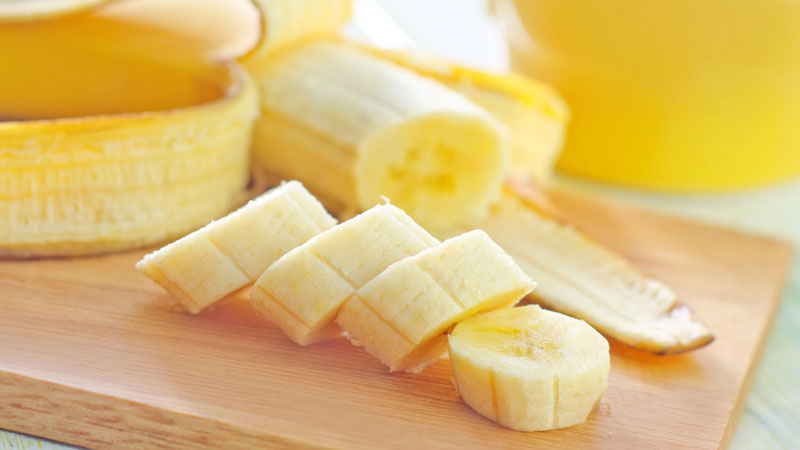
Bananas have a reputation of being a great source of potassium, but while they are a good source of this nutrient, where bananas really shine is in their vitamin B6 content. This is a very convenient thing because vitamin B6 is key for the development of our brain during pregnancy and infancy. And guess what? Bananas are a favorite first solid for our babies!
Plus, bananas are incredibly versatile. They can add sweetness to our smoothies, they can help us make some delicious nice cream, and they are great for baking goods like, well, banana bread, muffins, or even pancakes. You can even share them, in moderation, with your cats and dogs. Though your dog may enjoy them more.
And bananas, of course, are a very convenient snack to take on-the-go. Just make sure they don’t stay too long in your purse or your kids’ backpacks because they ripen fast and you could end up with a sticky mess once they’re overripe.
You may be concerned about the amount of fructose in bananas, but you’ll be happy to know that, contrary to many people’s beliefs, bananas have a low to medium glycemic index, depending on how ripe they are.
Scroll down to see how much nutrition you and your family can get from eating bananas with our personalized nutrition calculator.
Banana Nutrition Calculator
Use our personalized nutrition calculator to discover the percentage of daily nutrition needs you and your family can get from eating bananas.
Nutrition needs vary according to age, sex, and whether women of reproductive age are pregnant or breastfeeding. Fill out the form below for yourself and for your family members to get personalized results.*
* Calculated as a percentage of the Recommended Daily Allowances (RDAs) as established by the U.S. Department of Agriculture and the U.S. Department of Health and Human Services. Based on nutritional information provided by the U.S. Department of Agriculture as an average of multiple banana samples.
Tips to Select and Enjoy Bananas
Organic or Not?
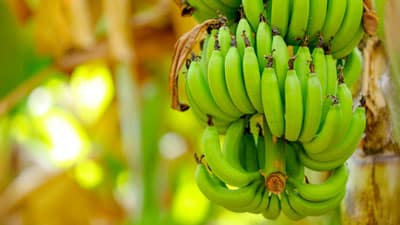
Bananas are number 11 in The Clean 15 list provided by the Environmental Working Group (EWG). This means it is safe to buy conventional bananas. After all, they do have a thick skin that protects them and that we can easily peel off.
How Ripe Should They Be?
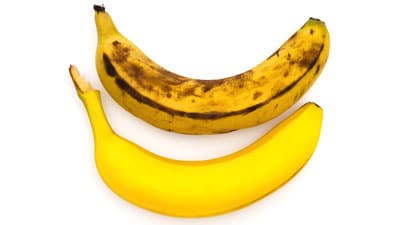
It comes down to personal taste. Some people like to eat their bananas when the skin is bright yellow, or even a bit green, while others like them a lot more ripened. Two things to consider are glycemic index and antioxidant power. As bananas ripen, they lose antioxidant power and have an increase in their glycemic index, starting at low but not going higher than medium. Surprising for such a sweet delight!
Convenient for Baby Food or Baking
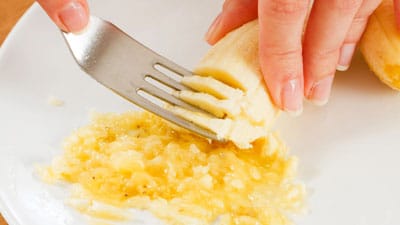
Bananas are a very popular fruit. Yes, they’re delicious, but they are also very convenient. You can literally just grab one and go. If you have a baby, you can mash it on the spot and feed it to your little one. In the kitchen, you can quickly mash them and use them as an oil replacement when baking. Just make sure you adjust the amount of other sweeteners because bananas will definitely add flavor to your creations.
Safe for Dogs and Cats

It’s safe to give bananas to your dogs and cats as long as you do it in moderation. Dogs will enjoy them more, though, because cats can’t really taste sweet flavors. You can give bananas to your furry friends in slices, mashed and mixed with their regular food, or even as frozen slices in a hot summer day. Don’t give them the peel, though. While it’s not toxic, it can cause blockage in their digestive tract.
Freeze for Smoothies and Nice Cream
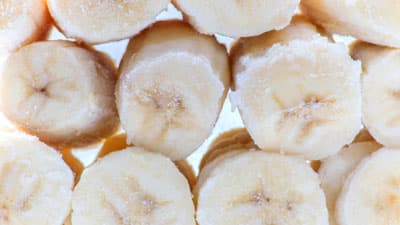
You’ve probably heard of nice cream or banana froyo. You can make these delicious treats by freezing your bananas and then blending them on their own or with other ingredients. This makes great smoothies too! Simply peel your bananas, slice them, and wrap them in wax paper. Then, place them in a freezer bag or inside a freezer container and store them for no longer than 3 months.
Dehydrate for a Sweet Snack
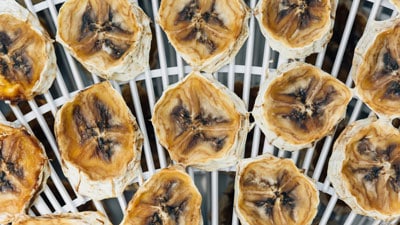
We know, these little guys don’t look too happy! But dehydrated bananas make great snacks. Simply slice a few bananas into thin pieces, sprinkle them with lemon juice, and spread them on your dehydrator tray. Set it to 135°F or 57°C for about 6 hours. After the first two hours, flip the slices to keep them from sticking to the tray. You’ll thank us later! Be sure to store them in an airtight container.
